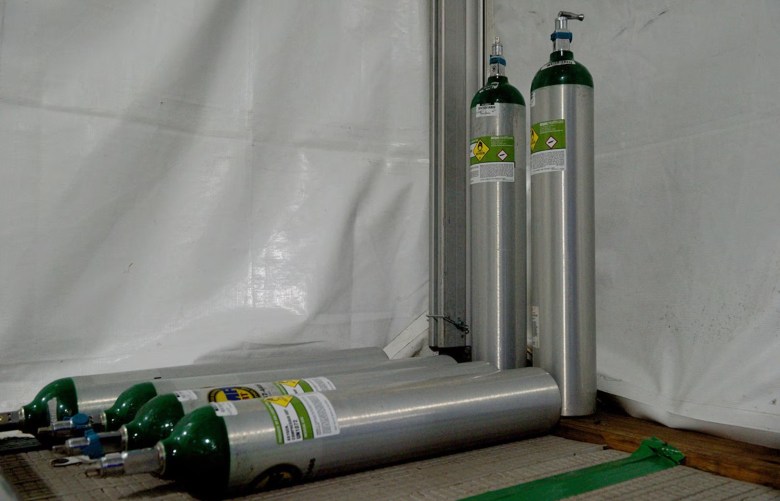For a patient with a chronic respiratory disease, hearing about government program cuts and efficiency improvements all the time can be a little unsettling. Although these are admirable objectives, changes should be made without interfering with patient care, particularly when it comes to medical oxygen.
I have been living with lung damage from a combination of alpha-1 antitrypsin deficiency and occupational exposure to a respiratory irritant for more than ten years. I am a longtime patient advocate, advisor, and leader of support groups for multiple advocacy organizations. I now use oxygen for travel and at night because my illness has gotten so bad.
My mother, who also need supplementary oxygen, is under my care. In order to live a limited, regular life, she depends on Medicare to give her access to oxygen. For this reason, I firmly believe that Congress should alter Medicare’s supplemental oxygen benefit.
Maintaining an active lifestyle, continuing to work, and maintaining a good standard of living all depend on having access to resources and services. There are just two significant oxygen providers in San Diego, and they both provide the same constrained selection of oxygen equipment.
Regardless of any changes in their condition or potential issues, folks like my mom are bound by a five-year contract with the oxygen and supply source under Medicare. The oxygen concentrator she currently uses, for instance, is so antiquated that the manufacturer went out of business years ago. Even when we work together, we can hardly move it throughout the house, much less outside, because it weighs about fifty pounds.
Some patients with advanced lung diseases who need high-flow supplemental oxygen may be confined to the hospital or their homes due to erratic Medicare reimbursement rates and a shortage of readily available liquid oxygen equipment, which is lighter and more portable than bulky, rapidly depleting oxygen tanks.
Because of her health, my mom’s physicians advised her to retire early, but she is unable to partake in many of the activities that people do after they retire. Even though her oxygen provider is one of the biggest in the nation and has a special travel division, they are unable to give her the supplies she needs to maintain safe oxygen levels. She had to pay for her own equipment in order to maintain a respectable standard of living and spend the night with family and friends.
That type of purchase is out of reach for many elderly people and people with COPD. And because Medicare is meant to cover them, why should they? However, it is not surprising if vendors are unable to offer the equipment if Medicare rates do not cover the expense of doing so.
Policymakers should acknowledge oxygen users as active, involved members of their communities, not as defined by their respiratory illness.
Supplemental oxygen is provided annually to more than 1.5 million Medicare beneficiaries with severe respiratory conditions to help them breathe, sleep, and lead more independent lives. Advocates are actively spearheading initiatives to promote improved efficiency, protect Medicare beneficiaries, and eliminate bad actors from the Medicare system because we understand that the system is not flawless and can cause patients to experience access issues.
Actually, the Supplemental Oxygen Access Reform Act, or SOAR, was created to safeguard beneficiary access. In order to preserve access for Americans who depend on medical oxygen to preserve their independence, mobility, and general well-being, this act would alter Medicare’s supplemental oxygen coverage.
In order to support and safeguard Medicare beneficiaries who depend on supplementary oxygen and respiratory therapy services, the SOAR Act lays out a precise set of obligations for oxygen suppliers. It mandates that beneficiaries and caregivers get written and verbal instruction about oxygen and oxygen-related equipment and services from a licensed clinical specialist (not a delivery technician) provided by all oxygen suppliers.
Additionally, suppliers would have to offer round-the-clock, on-call support to address beneficiaries’ urgent requirements and issues. The SOAR Act will help guarantee that patients have the assistance they require to use supplemental oxygen equipment correctly and safely by outlining these obligations.
Get neighborhood news in your inbox. It’s free and enlightening.
Become one of the 20,000+ individuals who receive breaking news alerts and the Times of San Diego in their inbox every day at 8 a.m.
Weekly updates from San Diego communities have also been provided! You acknowledge and agree to the terms by clicking “Sign Up.” Choose from the options below.
Additionally, the SOAR Act would create a beneficiary Bill of Rights with much-needed protections. Codifying patients’ rights to select their local oxygen provider, switch providers, receive transparent communications from providers, and decline or stop therapy at any time is part of this.
Access to medical oxygen is only one aspect of these reforms; another is obtaining the appropriate supplemental oxygen modality that enables people to flourish while efficiently managing their medical conditions.
By approving the SOAR Act, Congress can make significant progress toward modernizing our healthcare system and allowing people to live as they choose with supplemental oxygen.
For many years, Angela Merkins has served as a patient advocate, advisor, and organizer of support groups for various advocacy groups. She requires additional oxygen therapy for sleep and travel since she has had lung damage for more than ten years due to a combination of alpha-1 antitrypsin deficiency and industrial exposure to a respiratory irritant. She lives in Oceanside and assists in caring for her mother, who need oxygen therapy and has also been diagnosed with alpha-1.

 by
by 

